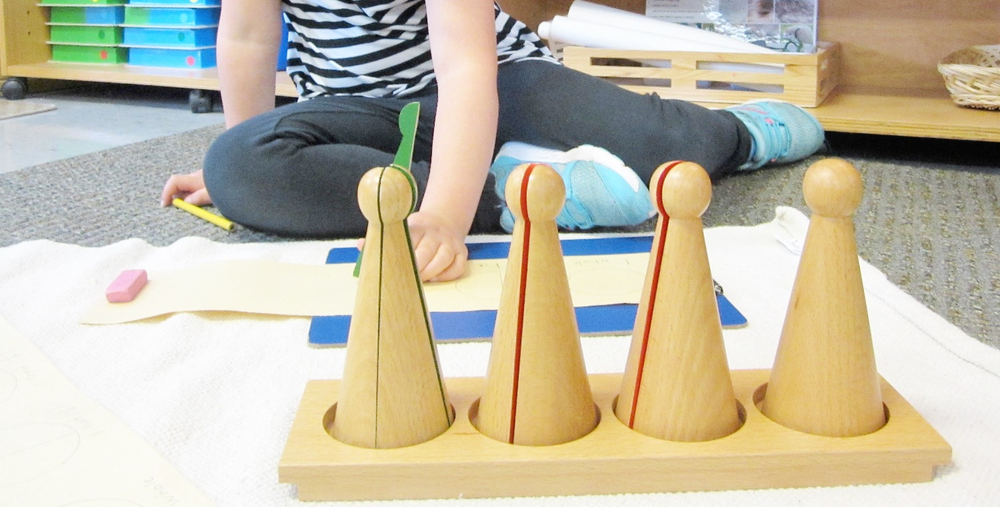
The Montessori Math materials are distinct for their ability to make concrete otherwise abstract concepts and, by doing so, to allow children to master mathematical concepts and relationships earlier than you may remember having learned them in school. Take the fraction materials, for example. While children use fractions all the time ("Can I have just half the cookie?") most traditional math sequences don't introduce them until Elementary school. In Montessori classrooms, though, they are presented first sensorially in early childhood, then in more complicated lessons as the child masters the basic relationships of parts comprising wholes.
The Montessori Skittles introduce wholes, halves, thirds and quarters. In the Early Childhood classroom, these are presented in equivalences, with the child able to compare halves and quarters, for example, and to make combinations of fractions that create one complete whole. In later Elementary, these same materials will be used when children learn to divide fractions by fractions.
First, the child is introduced to the whole skittle, a large figure they can move with their whole hand. Then, the child is introduced to the halves, which can be held together with one hand to explore with the other. Afterward, the child explores quarters, which are conceptually easier because they are halves of halves, and finally to thirds, the most difficult of these initial fractions. At each step, the child can explore how these fractions can combine to create wholes. These simple exercises can be presented to children even in their first year in the Montessori Early Childhood classroom, as young as 2.5 years old.
Although the concept of fractions is more complicated than that of whole numbers, when presenting them through materials the child can hold in their hand, move about and compare, children are able to master the language and equivalences. Early games to manage the nomenclature, to compare different fractions to each other, and to compile whole figures quickly expand to manipulating fractions in other mathematical operations. It may be earlier than you'd expect, but it is presented in a way that reflects what we know about how children learn and, thus, is just right for the children in our classrooms.
#Math #Sensorial #ForParents #ForTeachers #Curriculum #Primary #FirstPlane #SecondPlane #Elementary
